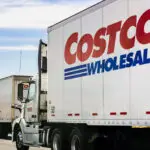Lidl has become a significant force in the English grocery market, revolutionizing how UK consumers think about affordable shopping. This German-originated supermarket chain has carved out a unique position, challenging traditional grocery retailers with its distinctive approach to pricing, quality, and customer experience.
The Origins of Lidl
Founded in 1930 by Josef Schwarz in Germany, Lidl began as a modest wholesale grocery business. The company we know today started taking shape in the 1970s, transforming into a discount supermarket chain that would eventually expand across Europe and beyond. In the United Kingdom, Lidl made its first appearance in 1994, gradually building its presence and reputation.
Entering the UK Market
Lidl’s entry into the English market was strategic and measured. Unlike some international retailers, the company took a careful approach to understanding British shopping habits, local preferences, and competitive landscape. Their unique business model, focused on offering high-quality products at significantly lower prices, quickly caught the attention of cost-conscious British consumers.
Unique Business Strategy
| Strategy Element | Key Characteristics |
|---|---|
| Pricing | Consistently lower prices compared to traditional supermarkets |
| Product Range | Limited selection focusing on quality over quantity |
| Store Design | Efficient, no-frills layout to reduce operational costs |
Diverse Product Offerings
- Grocery Essentials: Comprehensive range of everyday food items
- Fresh Produce: High-quality fruits, vegetables, and local produce
- Bakery: In-store bakeries with fresh bread and pastries
- Special Buys: Weekly rotating non-food items at incredible prices
Supporting Local Economy
Lidl’s commitment to the UK market goes beyond selling products. The company has consistently supported local British suppliers, creating economic opportunities and championing locally-produced goods. This approach has helped them build trust and credibility among English consumers.
Environmental Commitment
Sustainability has become a core focus for Lidl in England. The company has implemented various initiatives to reduce environmental impact, including reducing plastic packaging, supporting sustainable farming practices, and minimizing food waste.
Shopping Experience
“Quality doesn’t have to be expensive.” – Lidl’s Operational Philosophy
Lidl has transformed the perception of discount shopping. Their stores offer a streamlined, efficient shopping experience that doesn’t compromise on product quality or customer service.
Online and Digital Strategy
While primarily known for physical stores, Lidl has been expanding its digital footprint. The company offers online shopping resources, digital newsletters, and mobile apps to enhance customer engagement and provide convenient shopping options.
Market Position
In the competitive UK grocery market, Lidl has established itself as a major player. The company has consistently challenged traditional supermarkets like Tesco and Sainsbury’s, offering an attractive alternative for budget-conscious consumers without sacrificing quality.
Pandemic Adaptation
During the COVID-19 pandemic, Lidl demonstrated remarkable resilience. The company quickly implemented safety measures, supported local communities, and maintained consistent product availability during challenging times.
Growth and Expansion
Lidl continues to show strong growth potential in England. The company has been steadily increasing its store network, investing in infrastructure, and adapting to changing consumer preferences.
Frequently Asked Questions
- How many stores does Lidl have in England?
- As of 2024, Lidl operates over 900 stores across the United Kingdom.
- Are Lidl products of good quality?
- Yes, Lidl is known for offering high-quality products at competitive prices.
- Does Lidl offer online shopping?
- While primarily a physical store, Lidl provides digital resources and is continually expanding its online capabilities.
The Lidl Revolution Continues
Lidl in England represents more than just a supermarket chain. It’s a testament to how innovative business models can transform consumer expectations, offering quality, affordability, and convenience in one compelling package.


